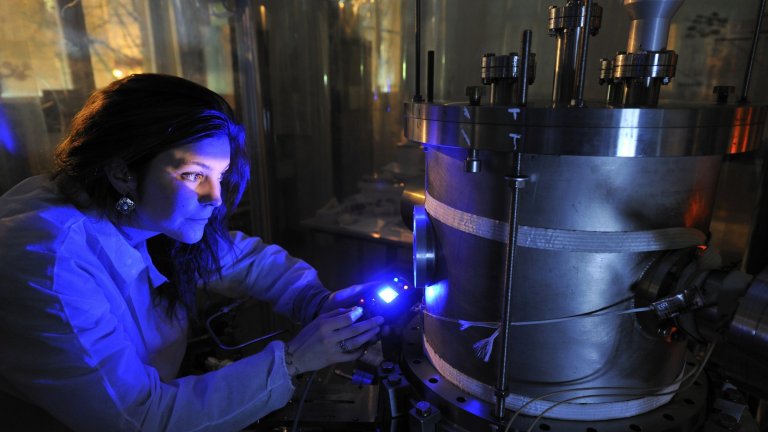
© Benoît Rajau / CNRS Images
View the mediaScientific news
The "Fête de la science" (Science Festival), which takes place 5-13 October, is celebrating its 30-year anniversary this year. It is an opportunity to discover the daily lives of scientists and share “the thrill of discovery” with them.

© Benoît Rajau / CNRS Images
View the mediaFor 30 years the celebration of science has sought to bring citizens closer to science and its actors, by providing visits, activities, demonstrations and discussions with scientists. It is both to show that science permeates every facet of our lives – particularly in this pandemic period – but also to encourage people to become scientists by showing how science is conducted and researchers’ daily lives.
This specific facet is highlighted at this anniversary exhibition: focused on the “thrill of discovery”, it encourages scientists to share their processes, struggles to produce new knowledge, and thrill they experience when they finally say “Eureka!” on making a major or minor discovery, with as many people as possible.
We also invite you to explore this process, including its unusual and sometimes outright eccentric aspects through the selection of documents we are presenting at this 2021 Science Festival. Through recent news stories or archives sometimes dating back several decades, you will discover astonishing inventions, amusing experiences, moving stories, but also and, most importantly, scientists at work to improve our daily lives and our future. And perhaps – who knows? – you may want to adopt a “blob”, the strange creature that has travelled in space with Thomas Pesquet, and has captivated thousands of pupils that it goes to school with...
Our work is guided by the way scientists question the world around them and we translate their research into images to help people to understand the world better and to awaken their curiosity and wonderment.